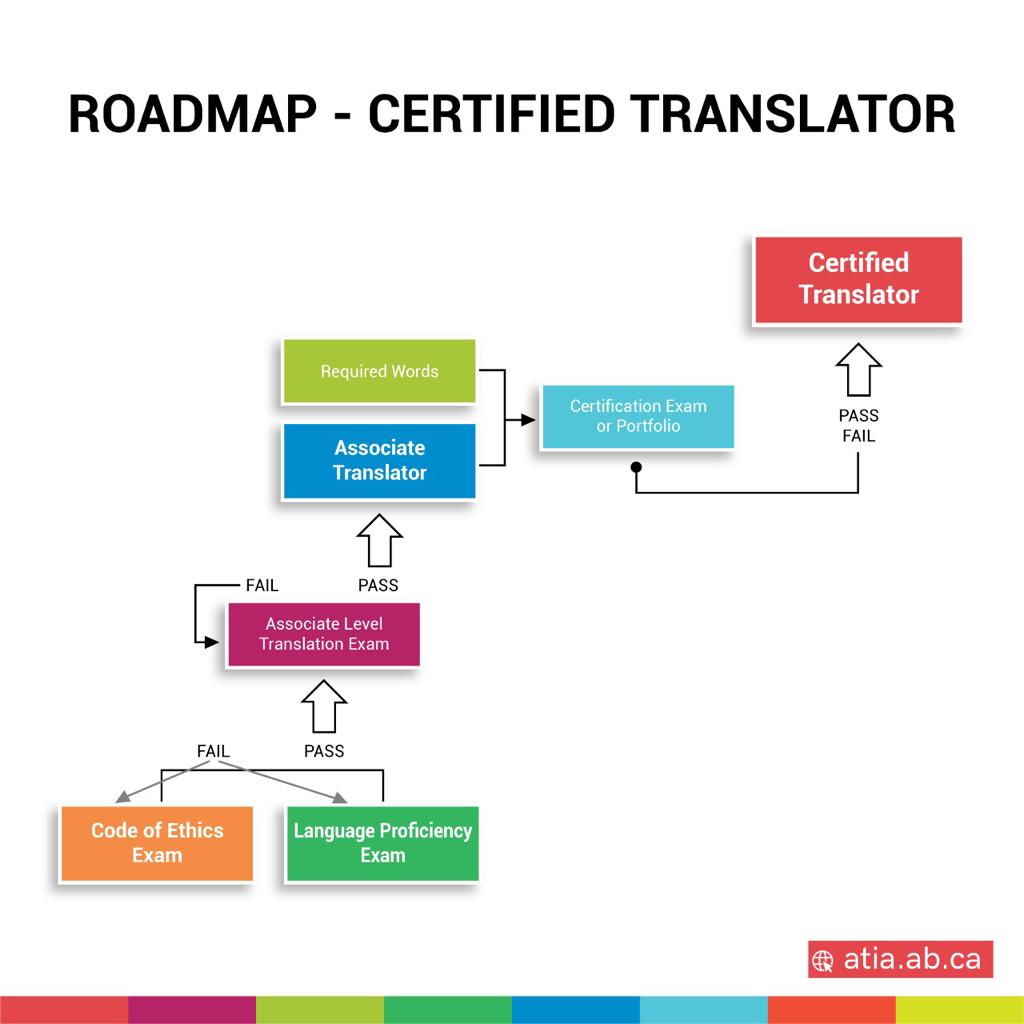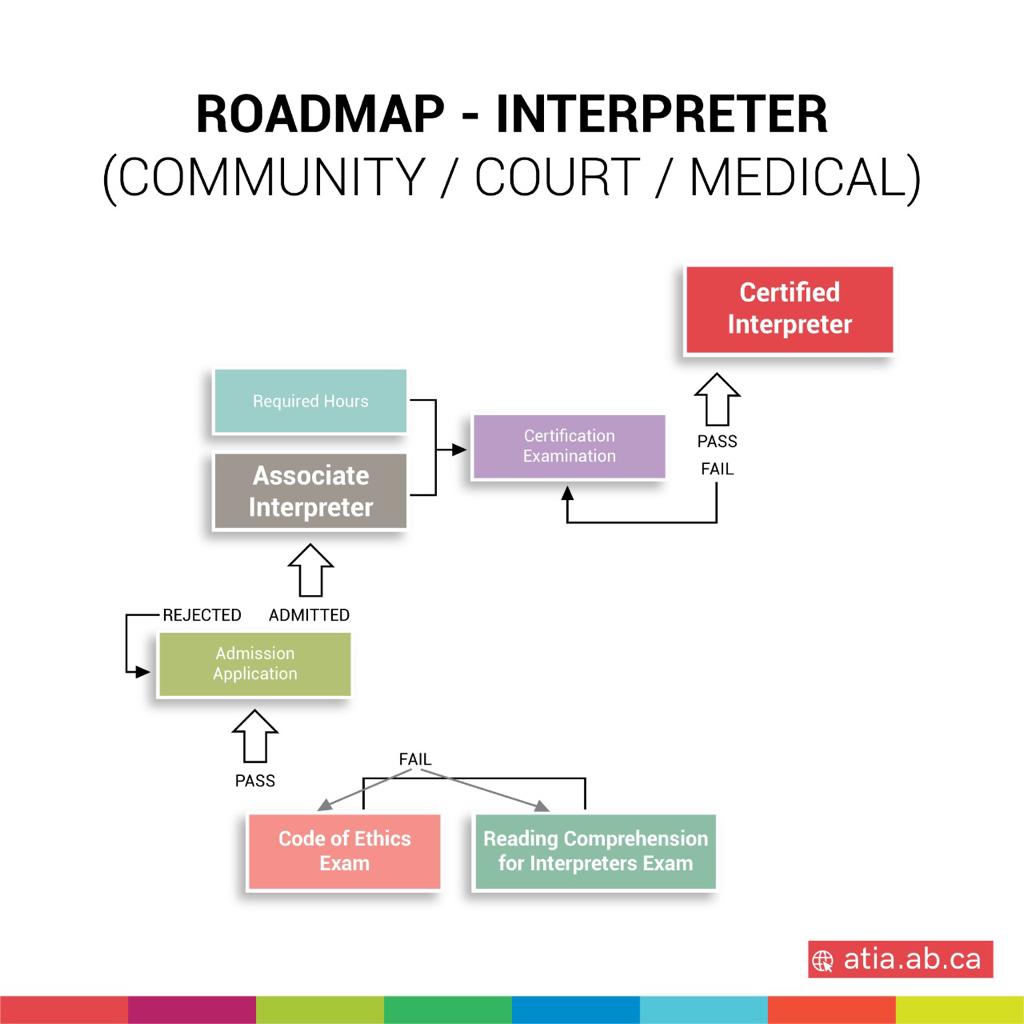ATIA offers membership in five categories: translator, court interpreter, community interpreter, medical interpreter, and conference interpreter.
To become a Certified Translator with the ATIA, the first step is to become an Associate Translator. This is done by passing the Code of Ethics Examination and the Language Proficiency Examination, followed by passing the Associate-level Translation Examination. After becoming an Associate Translator, candidates have six years to accumulate the required work experience, or translated word count, to either take the CTTIC Translation Certification Examination or have their translation portfolio evaluated to become a Certified Translator. Formal educational equivalencies from recognized institutions are also considered in the translated word count.
Community Interpreters, Court Interpreters, and Medical Interpreters must also become Associate Members before becoming certified with the ATIA, beginning with passing both the ATIA Code of Ethics Examination and the Reading Comprehension for Interpreters Examination. Interpreters must then meet the Associate-level interpretation experience requirements, measured in a combination of hours and relevant credentials to become an Associate Community, Court, or Medical Interpreter. After once again fulfilling additional interpretation experience hours, interpreters must pass the Certified Community, Court, or Medical Interpreter Examination.
There is no associate-level membership in the ATIA for Conference Interpreters. To become a Certified Conference Interpreter, professionals must meet the eligibility requirements as well as demonstrating the required amount of work experience as a conference interpreter.
Professional Translators and Interpreters in every category can also apply to become Certified Members of the ATIA through the recognition of their out-of-province credentials from ATIA’s sister-associations.


